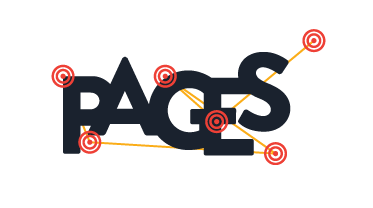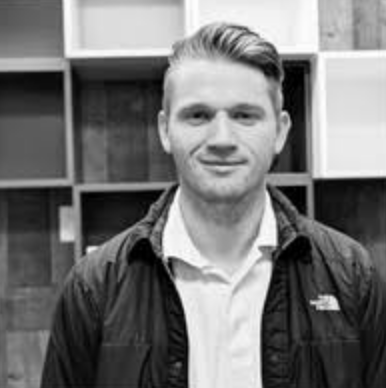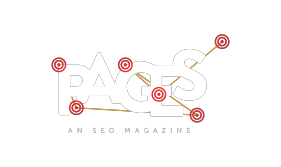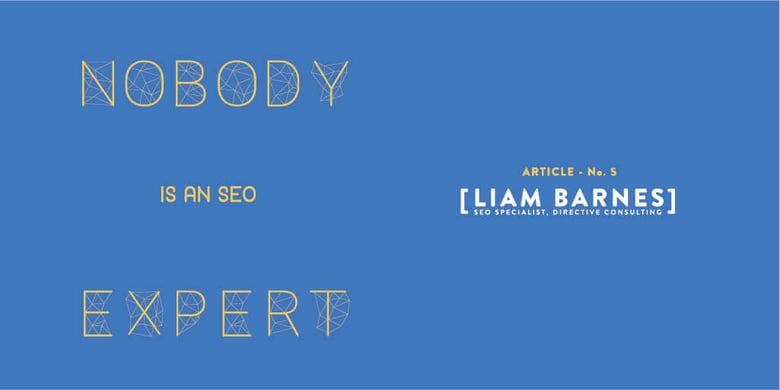
Throughout the marketing industry, SEOs and marketers alike have attached the term "expert" next to their name. SEO is an ever-changing industry. Every year there are new strategies, tactics, and trends that SEOs must become familiar with. Overall, this makes it challenging for one to become an "expert" in the field.
A Brief History
To provide a timeline for this argument, let's start with Yahoo back in 1994. As a directory listing website, this was the first real search engine that allowed users to find companies online.
Although argued, the first real signs of strategic SEO did not start until 1997. In early September 1998, Google was founded in Menlo Park by Larry Page and Sergey Brin.
Since 1998, Google has dominated the search industry and has consistently updated its algorithm to understand user search behavior better and, ultimately, provide the best user experience for searchers to find exactly what they are looking for.
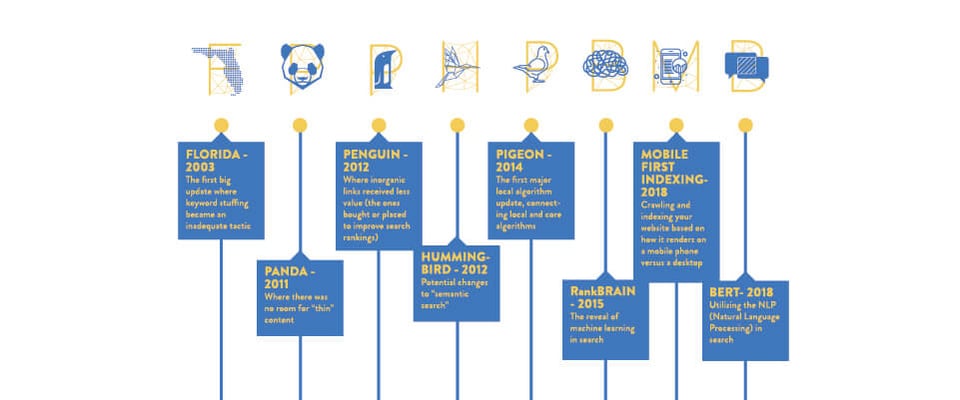
Look at some (not all) significant changes Google has made over the past 20 years:
2003: Florida - The first big update where keyword stuffing became an inadequate tactic
2011: Panda - Where there was no room for "thin" content
2012: Penguin - Where inorganic links received less value (the ones bought or placed to improve search rankings)
2013: Hummingbird - Potential changes to "semantic search"
2014: Pigeon - The first major local algorithm update, connecting local and core algorithms
2015: RankBrain - The reveal of machine learning in search
2018: Mobile-First Indexing - Speaks for itself :)
2019: BERT - Utilizing the NLP (Natural Language Processing) model in search
As we know it today, SEO strategy seems to be driven by Google and its ongoing attempts to optimize its algorithm and with these eight updates, you can see just how much SEO has changed over the years.
Becoming an "Expert"
There are two outdated rules I would like to reference to make this argument seem more evident: Malcolm Gladwell's 10,000 hours and the Google 20% rule.
Malcolm Gladwell famously said that if you spend 10,000 hours on anything, you will become a master in that field. That means if you spend 20 hours a week practicing your craft, in 10 years, you will become a master at it.
In 2004, Google also highlighted that they encourage employees to spend 20% of their time working on what they think will benefit Google most.
Like I said, for this argument, let's take these two rules and smush them together and call it "Becoming an SEO Expert".
If you take 20% of a typical work week and you specifically dedicate that time to learning something new about SEO and developing those new skills, you are bound to 8 hours a week. For a 50-week year (considering two weeks of break per year), you are dedicating 400 hours a year to developing those SEO skills.
If you calculate that out, it will take you 25 years to become a master of SEO.
Learning While Working, Working on Learning
On the other hand, most people will read this and tell me they spend more time outside of the 40 hours of work learning, or that they learn while they work. I am not discounting those few and far between, and I am not taking a shot at the SEO world.
I understand the argument for learning while working, as I am one of those who learn best by doing the actual work.
Additionally, I don't want to discount those who I look up to in the SEO industry who have spent their whole career absorbing the search engine and teaching those who continuously want to learn: Brian Dean, Loren Baker, Hamlet Batista, and more.
However, you can read as many blogs, take as many classes, and watch as many instructional videos as you want, but the way to truly become world class at SEO is taking what you learn and trying it on in your work.
Steve Toth of Freshbooks once told me, “You don't know if something works until you yourself have tested it, and even those results are going to have a shelf life with SEO.” Continuously A/B testing in SEO is crucial, not only for performance but for personal and professional development.
Take a step back and decide if you are a true "expert." SEO is ever changing, so as soon as "best practices" finally set in for us, there are new ones that take their place that we must learn AND try.
Actionable Knowledge is Power
The SEO community is incredible because there is no tactic that is hidden. People give credit where credit is due, and they genuinely want the world to be better at the craft.
There are numerous ways to learn SEO: podcasts, webinars, blog posts, ultimate guides, videos, conferences, and more. This content not only gives context to what is happening in the SEO world but also provides a diverse way of learning from educators around the world. You are given the opportunity to interact with some of the brightest minds in the marketing world.
Here are some of my favorite ways to keep up with the most innovative SEOs in the world:
-
- Follow various Twitter accounts to step up your everyday SEO knowledge: @lorenbaker, @moz, @directiveconsulting, @garrettmehrguth, @hamletbatista
- Sign up for Brian Dean’s email list
- Read Search Engine Land and Search Engine Journal daily
- Tune in for Moz Whiteboard Fridays and stay up-to-date with Moz’s blog content
With that being said, there are a few points I want you to take away from this message:
-
- Don't stop learning. Test new tactics in your work, even if you've been around for 25 years.
- Don't stop teaching others, even if you've only been around for a year. Sometimes you learn the most by breaking it down for others.
- Keep A/B testing; there are always new insights to unwrap about your targeted audience. However, you won’t know what they are until you actually test them.
- Continue to dive deeper into other kinds of marketing. You’ll be amazed at how much better of a marketer you can be with a breadth of knowledge. Ask questions to your design team, see what your sales team has been working on, identify what strategies have been moving the needle on the PPC side. You never know where you can find your edge.
- Watch as many explanatory videos as possible on YouTube, the more perspectives you can get, the better. You may not agree with all of them, but they can equip you with answers to potential questions that may arise.
Although this article leads with a bit of hyperbole, there are a few SEOs I would consider "experts." But even so, these people are human who continually run experiments, learning new things about the industry EVERY day.
Thank you, Moz, Loren Baker of SEJ, Brian Dean, and more for the information presented in this article, and for teaching us how to be better SEOs who never stop learning.
